Turkey has become the leading importer of fishmeal from occupied Western Sahara. The aquaculture company Gümüşdoğa turns the meal into valuable fisheries products for the European market.
On 6 November 2019, Western Sahara Resource Watch (WSRW) was witness to the arrival of the cargo vessel Derya Aytekin as it arrived at the port of Gulluk, Turkey. The vessel’s hold was entirely loaded with white bags of fishmeal from occupied Western Sahara.
A large crane loaded the meal over to waiting trucks, which WSRW followed from the port to the factory of Gümüşdoğa A.S, a 15-minute drive away. The Turkish importer operates a fishmeal factory and sea-cage farms for production of sea bass and sea bream.
A dozen workers were sitting outside of the Gümüşdoğa fish feed factory waiting for the first truck to arrive. See the entire route from the port to the factory filmed on dashboard cam to the right.
The arrival of Derya Aytekin is the fifteenth such transport from El Aaiun to Gulluk in 2019 alone, from what WSRW understands. Except an occasional delivery to Bremen, the trade to Turkey practically equals the entire export of fishmeal from the territory. Until this week, it was unknown to WSRW what happens to the meal after arrival to Turkey.
WSRW considers that the Derya Aytekin could have had a cargo of several million USDs. If taking into account the vessel's cargo capacity of approximately 6830 tonnes, that the vessel was at 6,1 meters draught (of a max draught of 6,91 meters), the vessel could quickly have contained around 5200 tonnes of fishmeal. The general market price of fishmeal at Indexmundi is around 1.500 USD/tonne. A conservative estimate of 5000 tonnes at 1000 USD/tonne, means that the transport was worth 5 million USD.
According to the European Market Observatory for fisheries and aquaculture (EUMOFA) - a market intelligence tool developed by the European Commission - Turkey was in 2017 the main supplier of sea bass and gilthead sea bream (most of which was farmed) into the EU market. Of 51.208 tonnes of European sea bass and gilthead sea bream imported to the EU in 2017, a staggering 98% originated in Turkey, a “historic high” import volume. Interestingly, Greece, which traditionally has been the Mediterranean’s largest producing country, was “bypassed in 2016-2017 by the fast-growing production in Turkey”, according to EUMOFA.
Gümüşdoğa is said to produce 27.000 tonnes of sea bream and sea bass annually, in 14 sea-cage fish farms. Gümüşdoğa also produces 12.000 tonnes of rainbow trouts from 22 fish farms. It is one of Turkey’s largest producers and suppliers of these species, exported to Europe in fresh or frozen form.
In addition to the one in Gulluk, the Turkish importer also has fish feed plants in Milas and Keba.
Gümüşdoğa’s trade to Europe seems to be represented by Dalga, an Athens-based trading company. Dalga is claiming to export to 400 locations in 20 European countries. Its clients are wholesalers and supermarkets.
Western Sahara Resource Watch wrote to Gümüşdoğa asking the company to terminate its imports from occupied Western Sahara. WSRW also wrote to Dalga, asking them to request their Turkish partner to halt the trade.
WSRW expects that other Turkish ports are used to offload fishmeal from Western Sahara; namely Ambarli, Nemrut, Istanbul, Izmit, Colkuk and Eregli. WSRW only knows of one other country that receives fishmeal from Western Sahara: Germany. See previous stories regarding the imports to Bremen.
Batı Sahra'dan Türkiye'ye gelen balık unu ithalatı hakkında bir bilginiz var mı? Send us a tip to shipping@wsrw.org.
Morocco has developed a large fishmeal and fish oil industry in Western Sahara for international aquaculture companies. The trade is employing Moroccan settlers in the occupied territory, and contributes to financially support and politically legitimize Morocco's military occupation. The Turkish imports is directly funding the occupation.
It is not clear which fishmeal factory in El Aaiun, Western Sahara, is behind the shipment. It is known that the meal producer Copelit has exported previously to Gulluk.
The vessel Derya Aytekin is Panama flagged, and with IMO 9136864, operated by the small Turkish shipping company Efemey Shipping.
Original film elements can be downloaded here, free for use: Film clip 0, Film clip 1, Film clip 2, Film clip 3, Film clip 4, Film clip 5, Film clip 6, Film clip 7, Film clip 8, Film clip 9, Film clip 10, Film clip 11, Film clip 12.
Pictures below are taken by WSRW and can be used freely. No credit needed.
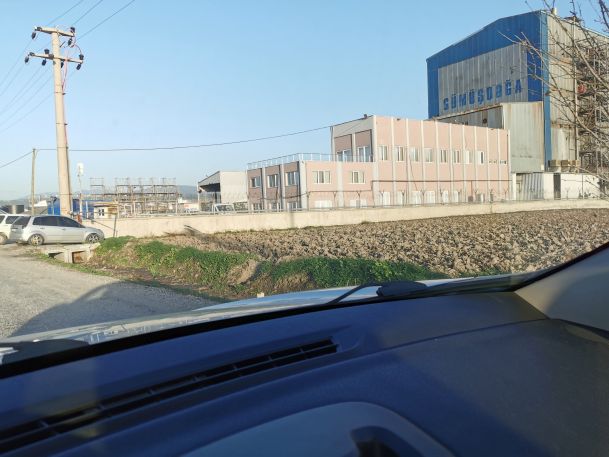
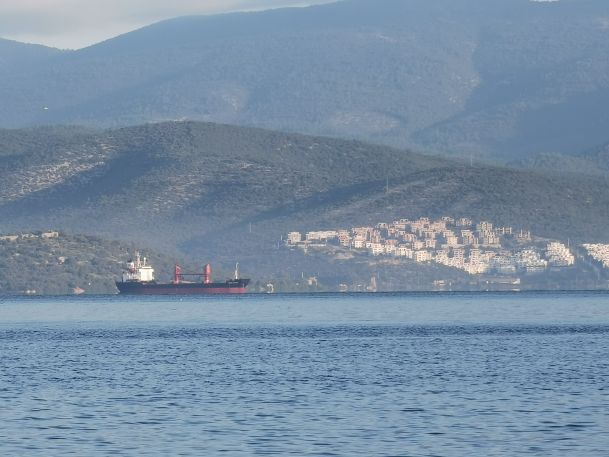
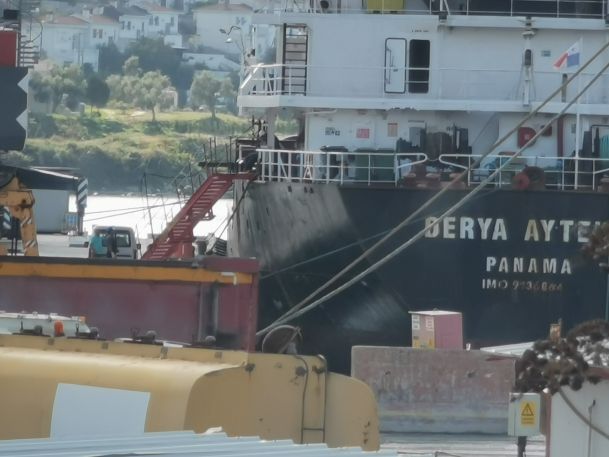
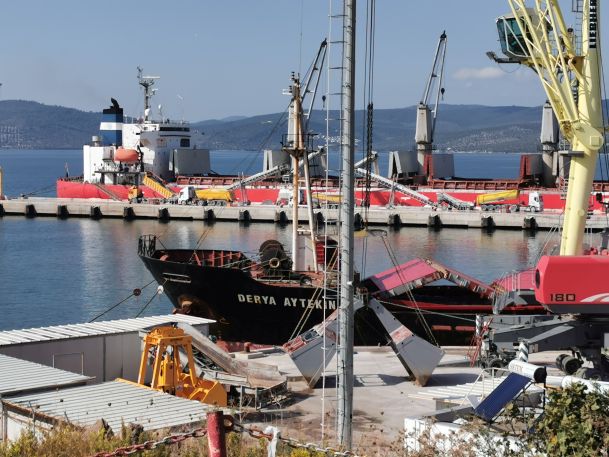
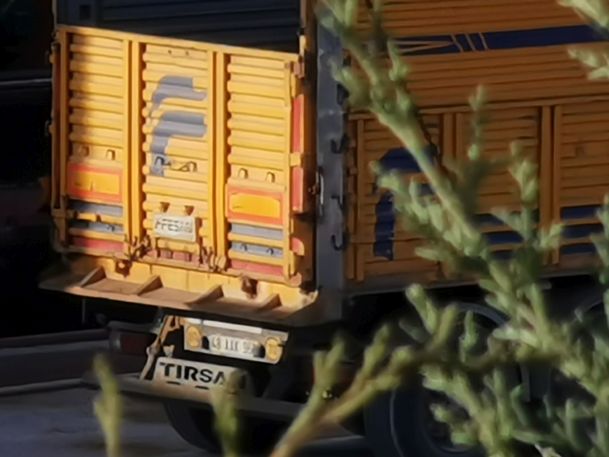
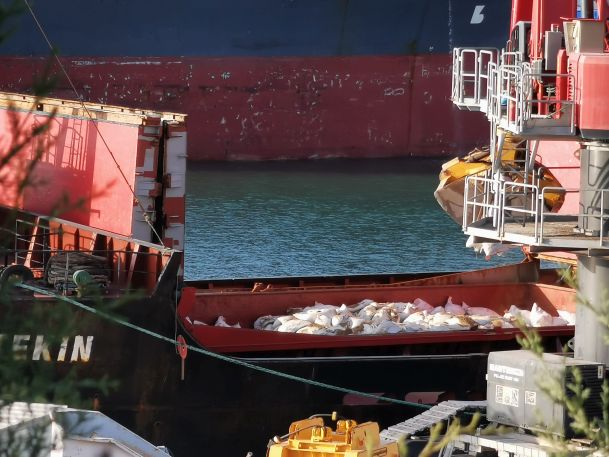
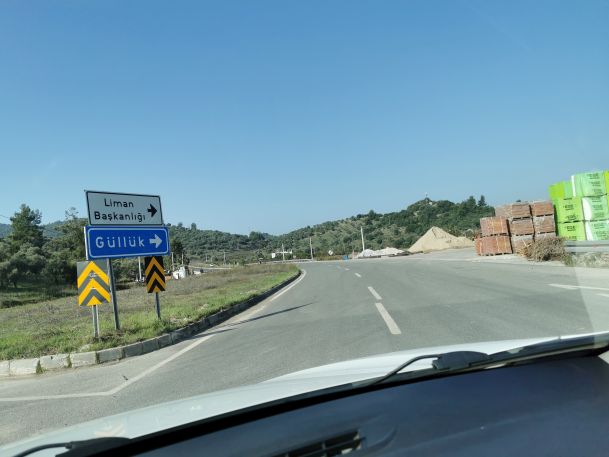
Morocco allocates land in occupied Western Sahara to green hydrogen investors
Morocco’s ambitions to become a global green hydrogen powerhouse are accelerating. Yet, Rabat is allocating land in a territory it does not legally own.
US eyes minerals in occupied Western Sahara
Seeking to position itself as a key supplier of strategic minerals for Western powers, Morocco has signed a new agreement with the United States that covers Western Sahara’s waters and the critical minerals harboured there.
TAQA-Moeve obtains land in occupied Western Sahara
Morocco’s push for green hydrogen has taken a decisive step forward - on territory it does not legally own.
EU-Morocco Statement: autonomy without self-determination, law without lawfulness
A joint statement that came out of last week’s EU-Morocco Association Council asks readers to believe in a fiction: that an undefined autonomy plan imposed by an occupying power can satisfy the right to self-determination, and that respect for international law can coexist with the systematic ignoring of the EU’s own highest court.



